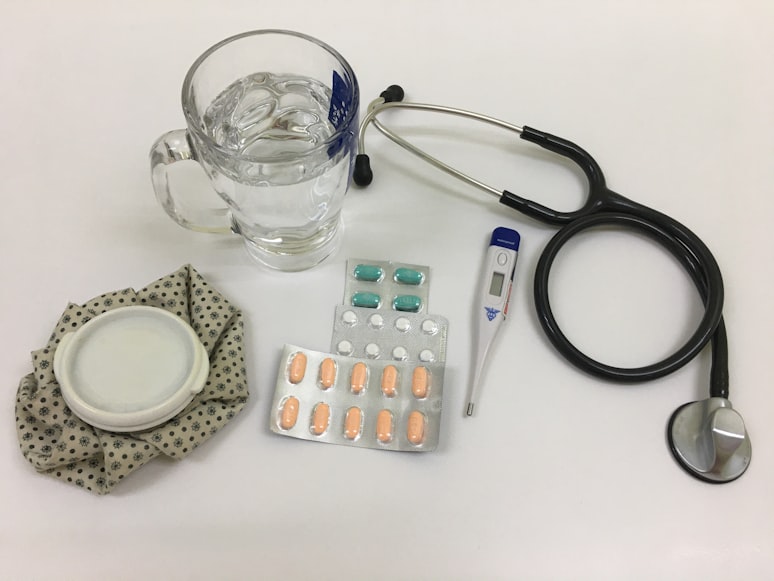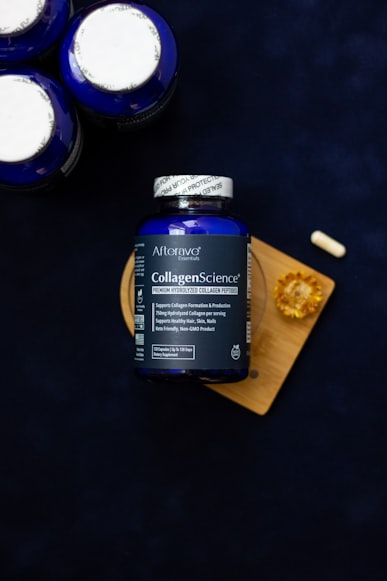Over the Counter Medications for Canine Diarrhea

Diarrhea, a common affliction among dogs, can be distressing for both the pet and its owner. While mild cases may resolve on their own, severe or persistent episodes require medical attention. However, for mild to moderate cases, over-the-counter (OTC) medications can provide effective relief.
Understanding Canine Diarrhea
Diarrhea is a condition characterized by loose, watery stools. It can be caused by various factors, including dietary changes, gastrointestinal infections, parasites, stress, and underlying medical conditions. While often self-limiting, it can lead to dehydration and electrolyte imbalances if not treated promptly.
OTC Medications for Diarrhea
Several OTC medications are available to help control diarrhea in dogs. These medications work by binding water in the intestines, reducing stool frequency and consistency. Some of the most commonly used OTC medications include:
- Kaolin-Pectin: This combination contains two ingredients that bind water and help form solid stools. It is generally safe for dogs and can be given as directed on the packaging.
- Bismuth Subsalicylate (Pepto-Bismol): This medication contains an ingredient that coats the gastrointestinal tract and reduces inflammation. It can be used to treat diarrhea caused by mild gastrointestinal upset.
- Activated Charcoal: This highly absorbent substance helps bind toxins and reduce diarrhea. It is particularly effective in cases of food poisoning or toxin ingestion.
- Loperamide (Imodium): This medication slows down intestinal motility, reducing stool frequency. However, it should not be given to dogs with severe diarrhea or bloody stools.
How to Choose the Right Medication
When selecting an OTC medication for diarrhea, it is important to consider the underlying cause and the severity of the symptoms. For example, kaolin-pectin is suitable for mild cases caused by dietary changes, while activated charcoal is more effective for toxin-related diarrhea.
Dosage and Administration
Always follow the instructions on the packaging carefully. Dosage will vary depending on the medication and the dog’s weight. Remember to shake liquid medications well before each use. Administer the medication orally with a syringe or by mixing it with food.
When to Seek Veterinary Attention
While OTC medications can provide relief from mild to moderate diarrhea, it is crucial to seek veterinary attention if:
- The diarrhea lasts for more than 24 hours.
- The stools are bloody or mucus-containing.
- The dog is vomiting or lethargic.
- The dog has a fever or abdominal pain.
- The dog is a puppy or an older dog.
Prevention
Preventing diarrhea is essential for maintaining your dog’s health. Some preventive measures include:
- Feeding a high-quality diet and avoiding sudden food changes.
- Keeping your dog clean and preventing exposure to parasites.
- Ensuring your dog is up-to-date on vaccinations.
- Managing stress levels.
Conclusion
Over-the-counter medications can provide effective relief from mild to moderate diarrhea in dogs. However, it is important to remember that these medications are not a substitute for veterinary care. If your dog’s diarrhea persists or worsens, seek professional medical attention to rule out any underlying medical conditions. By following these guidelines, you can help your furry friend recover from diarrhea and maintain a healthy digestive system.
Kaolin-Pectin Mixture:

Diarrhea is a common ailment in dogs, caused by a variety of factors including dietary indiscretions, infections, allergies, and medications. While severe or persistent diarrhea requires veterinary attention, there are several safe and effective over-the-counter (OTC) medications available to help alleviate your dog’s discomfort.
Understanding the different types of OTC medications and their specific uses is crucial for ensuring your dog receives the appropriate treatment. This comprehensive guide will provide you with detailed information on the most commonly used OTC medications for canine diarrhea, their benefits, and potential side effects.
1. Kaolin-Pectin Mixture
Kaolin-pectin mixture, also known as bismuth subsalicylate, is a classic OTC medication for treating diarrhea. This combination works by forming a protective barrier in the intestines, reducing irritation and absorbing toxins. It is effective in managing mild to moderate diarrhea caused by dietary indiscretions or stress.
Benefits:
- Reduces inflammation and irritation
- Absorbs toxins and harmful bacteria
- Relieves abdominal discomfort
Dosage:
The recommended dosage for kaolin-pectin mixture is typically 1-2 ounces (30-60 ml) every 6-8 hours. However, it is always best to consult with a veterinarian for the most accurate dosage based on your dog’s weight and condition.
2. Loperamide
Loperamide, sold under the brand name Imodium, is an antidiarrheal medication that slows down the contractions of the intestines, reducing the frequency and urgency of diarrhea. It is effective in treating mild to moderate diarrhea caused by various factors.
Benefits:
- Decreases intestinal motility
- Reduces fluid loss and electrolyte imbalance
- Relieves symptoms of diarrhea
Dosage:
The typical dosage for loperamide in dogs is 0.1-0.2 mg per kilogram of body weight, given every 8-12 hours. Again, it is essential to consult with a veterinarian before administering loperamide to ensure it is the appropriate medication for your dog’s condition.
3. Psyllium
Psyllium is a soluble fiber that forms a gel-like substance when mixed with water. This gel absorbs water from the intestines, reducing stool volume and frequency. Psyllium is commonly used to treat mild diarrhea and constipation.
Benefits:
- Bulks up stool, reducing its water content
- Relieves diarrhea and constipation symptoms
- Supports digestive health
Dosage:
The dosage for psyllium in dogs varies depending on the product used. Follow the manufacturer’s instructions carefully and consult with a veterinarian if you have any questions.
4. Probiotics
Probiotics are live microorganisms that have beneficial effects on the digestive system. They help restore the balance of gut flora and support overall digestive health. Probiotics can be effective in preventing and treating diarrhea caused by bacterial imbalances.
Benefits:
- Improve gut health and restore the balance of beneficial bacteria
- Prevent and treat diarrhea caused by bacterial infections
- Strengthen the immune system
Dosage:
The dosage for probiotics in dogs varies depending on the specific product used. It is important to choose a product that contains viable, high-quality probiotics.
Important Considerations
Before administering any OTC medication to your dog, it is crucial to consult with a veterinarian to ensure it is suitable for their condition. Some medications may not be appropriate for dogs with certain health conditions or in combination with other medications.
Additionally, it is important to note that OTC medications should be used sparingly and for short periods. Prolonged use may lead to dependency and other health issues. If your dog’s diarrhea persists or worsens, it is essential to seek veterinary attention.
Conclusion
OTC medications can provide safe and effective relief for dogs suffering from diarrhea. However, it is essential to choose the appropriate medication based on your dog’s condition and consult with a veterinarian before administering any medication. By understanding the different types of OTC medications available and their potential benefits and side effects, you can help your furry friend recover from diarrhea quickly and comfortably.
Bismuth Subsalicylate (Pepto-Bismol):

Diarrhea, a common digestive issue in dogs, can be distressing for both the dog and its owner. While mild diarrhea can often resolve on its own, more severe cases may require veterinary intervention and treatment. Over-the-counter (OTC) medications can provide temporary relief from diarrhea and help rehydrate dogs. However, it’s crucial to consult with a veterinarian before administering any medication, as some may be harmful to dogs.
Bismuth Subsalicylate (Pepto-Bismol): An Anti-Diarrheal for Dogs
Bismuth subsalicylate, commonly known as Pepto-Bismol, is an OTC anti-diarrheal medication that can be used to treat diarrhea in dogs. It works by inhibiting prostaglandins, hormone-like substances that cause inflammation and fluid secretion in the intestines. By reducing inflammation, bismuth subsalicylate helps to slow down intestinal motility, allowing the colon to reabsorb more water and electrolytes from the stool.
Dosage and Administration
The recommended dosage of Pepto-Bismol for dogs is 1 teaspoon (5 ml) per 10 pounds of body weight, given orally every 6-8 hours. It’s important not to exceed the maximum recommended dosage, as high doses of bismuth subsalicylate can cause side effects such as upset stomach, constipation, and black stools.
Precautions and Contraindications
While Pepto-Bismol is generally safe for most dogs, there are some precautions and contraindications to consider:
- Age: Pepto-Bismol should not be given to puppies under 6 weeks of age.
- Pregnancy and Lactation: Pepto-Bismol should not be given to pregnant or lactating dogs without consulting a veterinarian.
- Gastric Ulcers: Dogs with gastric ulcers should not take Pepto-Bismol, as it can worsen the condition.
- Other Medications: Pepto-Bismol may interact with other medications, so it’s important to inform your veterinarian about any other medications your dog is taking.
Alternatives to Pepto-Bismol
If Pepto-Bismol is not suitable for your dog or does not provide adequate relief, there are other OTC medications that can be used to treat diarrhea. These include:
- Kaolin and Pectin: These two ingredients help to absorb excess fluid and form bulk in the stool, which can help to reduce diarrhea.
- Activated Charcoal: Activated charcoal adsorbs toxins and gases in the intestines, which can help to reduce diarrhea and gas.
- Imodium (Loperamide): This medication is a prescription-only drug that can be used to slow down intestinal motility and reduce diarrhea.
When to See a Veterinarian
While OTC medications can provide temporary relief from diarrhea, it’s important to seek veterinary attention if the diarrhea persists for more than 24 hours, is accompanied by other symptoms, or is severe. Severe diarrhea can lead to dehydration and electrolyte imbalance, which can be life-threatening.
Conclusion
Bismuth subsalicylate (Pepto-Bismol) is a safe and effective OTC medication that can be used to treat mild diarrhea in dogs. However, it’s crucial to consult with a veterinarian before administering any medication, as some may be harmful to dogs. By understanding the proper dosage, precautions, and contraindications of Pepto-Bismol and other OTC medications, dog pet bloggers can provide informed guidance to their readers and help ensure the well-being of their canine companions.
Activated Charcoal:

As a loving dog owner, you’d do anything to ensure your furry friend’s well-being. When your pet experiences an occasional bout of diarrhea, it can be unsettling, especially if you’re unsure of the underlying cause. While it’s always advisable to consult with your veterinarian for proper diagnosis and treatment, there are some over-the-counter medications you can consider administering under certain circumstances.
Understanding Canine Diarrhea
Diarrhea is a common symptom that can occur due to various factors, including dietary indiscretion, bacterial or viral infections, and inflammatory bowel diseases. It’s characterized by frequent, watery stools that can range from mild to severe. Persistent diarrhea can lead to dehydration, electrolyte imbalances, and other health concerns.
Over-the-Counter Medications for Diarrhea
While not all over-the-counter medications are safe for dogs, a few can provide temporary relief from diarrhea when used appropriately. It’s crucial to note that these medications should never be administered without first consulting with your veterinarian.
1. Activated Charcoal
Activated charcoal is a highly absorbent substance that binds to toxins and reduces inflammation in the digestive tract. It’s commonly used to treat diarrhea caused by poisoning (ingestion of harmful substances) or excessive gas. Administer as directed by your veterinarian, as excessive use can lead to constipation.
2. Bismuth Subsalicylate (Pepto-Bismol®)
Bismuth subsalicylate is an anti-inflammatory and antibacterial agent that can help soothe the digestive tract and reduce diarrhea. It’s important to use the regular strength Pepto-Bismol® as the maximum strength version contains salicylates, which can be harmful to dogs. Administer as per the manufacturer’s instructions for your dog’s weight.
3. Kaolin and Pectin (Kaopectate®)
Kaolin and pectin are both absorbent substances that can help firm up stool and reduce diarrhea. They are commonly used in combination and can provide temporary relief for mild cases of diarrhea. Follow the manufacturer’s instructions for dosage based on your dog’s weight.
4. Metronidazole (Flagyl®)
Metronidazole is an antibiotic that is effective against certain types of bacterial infections that can cause diarrhea. It’s important to note that metronidazole requires a prescription from your veterinarian, but it can be helpful for treating severe cases of diarrhea caused by bacterial overgrowth.
5. Probiotics
Probiotics are live microorganisms that can help balance the gut microbiome and support digestion. They can be beneficial for treating diarrhea caused by antibiotic use, stress, or dietary changes. While probiotics are generally considered safe, it’s still advisable to consult with your veterinarian before administering them to your dog.
Cautionary Measures
Always consult with your veterinarian before administering any over-the-counter medications to your dog, especially if they are under 6 months of age, pregnant, or have underlying health conditions. Some medications can be harmful or even fatal if not used properly.
Over-the-counter medications should only be used as a temporary measure to relieve symptoms. If your dog’s diarrhea persists or worsens, it’s essential to seek veterinary attention for a proper diagnosis and treatment plan.
Prevention of Diarrhea
The best way to reduce the risk of diarrhea in dogs is through preventive measures:
- Feed your dog a high-quality diet that meets their nutritional needs.
- Avoid abrupt dietary changes that can upset their digestive system.
- Keep toxic substances (plants, chemicals) out of your dog’s reach.
- Vaccinate your dog against common viral and bacterial infections.
- Practice good hygiene to prevent the spread of infectious diseases.
Conclusion
Over-the-counter medications can provide temporary relief from diarrhea in dogs in certain circumstances. However, it’s crucial to use these medications cautiously and under the guidance of your veterinarian. If your dog’s diarrhea persists or worsens, seek veterinary attention for professional diagnosis and treatment. By understanding the causes of diarrhea and implementing preventive measures, you can help keep your furry companion healthy and happy.
Fiber Supplements (e.g., Metamucil):

Diarrhea, a common ailment in dogs, can be caused by various factors such as dietary indiscretion, stress, and infections. While most cases of mild diarrhea resolve on their own, severe or persistent diarrhea can lead to dehydration and electrolyte imbalances, requiring veterinary attention. In some instances, certain over-the-counter medications can provide temporary relief from diarrhea in dogs.
Caution: It’s crucial to consult your veterinarian before administering any over-the-counter medications to your dog. Some medications may interact with other drugs or underlying medical conditions. Additionally, the dosage and frequency of administration should be determined by your veterinarian based on your dog’s weight, age, and health status.
1. Anti-Diarrheal Medications (e.g., Pepto-Bismol, Kaolin-Pectin):
Anti-diarrheal medications work by slowing down the motility of the intestines, reducing the frequency of bowel movements. They are typically used for acute, self-limiting episodes of diarrhea.
- Pepto-Bismol (Bismuth Subsalicylate): Safe for dogs in small doses, Pepto-Bismol can soothe irritated stomachs and reduce inflammation. The recommended dosage is 1-3 teaspoons per 20 pounds of body weight every 6-8 hours.
- Kaolin-Pectin: This combination medication contains kaolin, which absorbs excess fluid, and pectin, which bulks up the stool. It is typically used to treat mild diarrhea in dogs. Follow the dosing instructions on the package.
2. Probiotics:
Probiotics are live bacteria that help restore the balance of beneficial bacteria in the digestive tract. They can aid in treating diarrhea caused by dietary changes or antibiotic use.
- FortiFlora: This veterinarian-recommended probiotic powder contains live bacteria that support digestive health. Follow the manufacturer’s instructions for dosage.
3. Fiber Supplements (e.g., Metamucil):
Fiber supplements can help bulk up stool and absorb excess fluid, slowing down bowel movements.
- Metamucil: This fiber supplement is generally safe for dogs. The recommended dosage is 1-2 teaspoons per 20 pounds of body weight mixed with food or water once or twice a day.
4. Electrolyte Solutions:
Electrolyte solutions help replenish fluids and electrolytes lost due to diarrhea. They are especially important for severe or ongoing diarrhea that can lead to dehydration.
- Pedialyte: This electrolyte solution is safe for dogs and can be given orally or added to food. Follow the manufacturer’s instructions for dosage.
When to Seek Veterinary Attention:
While over-the-counter medications can provide temporary relief from diarrhea, it’s essential to seek veterinary attention if your dog:
- Exhibits severe or persistent diarrhea (lasting more than 24 hours)
- Shows signs of dehydration (sunken eyes, dry gums, lethargy)
- Has bloody or foul-smelling diarrhea
- Vomits frequently
- Has a fever or other systemic symptoms
Prevention:
Preventing diarrhea in dogs is preferable to treating it. Here are some tips:
- Feed a high-quality diet and avoid sudden dietary changes.
- Provide plenty of fresh water.
- Vaccinate your dog against common viruses and bacteria.
- Practice good hygiene by cleaning up pet waste promptly.
- Consult your veterinarian for regular checkups and fecal examinations.
Remember, diarrhea is a symptom rather than a disease. Over-the-counter medications can alleviate symptoms in some cases, but addressing the underlying cause is essential for long-term recovery. Always consult your veterinarian before administering any medications to your dog and follow their instructions carefully.
Antihistamines (e.g., Benadryl):
Diarrhea is a common ailment among dogs, and while often self-resolving, it can be a frustrating and uncomfortable experience for both the dog and the owner. While veterinary care is always recommended for persistent or severe diarrhea, there are a few over-the-counter (OTC) medications that can provide temporary relief for mild cases.
Cautionary Notes Before Administration
Before administering any OTC medication to your dog, it is crucial to consult with your veterinarian. They can assess the underlying cause of the diarrhea and determine if OTC medications are appropriate. Additionally, the dosage and frequency of administration should be strictly followed as per veterinary guidance.
Types of OTC Medications for Dog Diarrhea
1. Antidiarrheals (e.g., Kaopectate, Imodium A-D)
These medications contain ingredients that help absorb excess fluid and electrolytes from the intestines, reducing stool frequency and consistency. Dosages vary depending on the specific product and the dog’s weight.
2. Pepto-Bismol
Pepto-Bismol contains bismuth subsalicylate, a compound that helps soothe the gastrointestinal tract and reduce inflammation. It is important to note that Pepto-Bismol should not be given to dogs with underlying liver or kidney problems.
3. Probiotics
Probiotics are live microorganisms that can help restore the balance of healthy gut bacteria, which can aid in the resolution of diarrhea. Probiotics are available in capsule or powder form and can be added to the dog’s food.
4. Antihistamines (e.g., Benadryl)
Antihistamines may help reduce allergic reactions that can trigger diarrhea. Benadryl, a commonly used antihistamine, can be given to dogs in small doses as directed by your veterinarian.
5. Loperamide (Imodium)
Loperamide is an antidiarrheal medication that slows down intestinal contractions, reducing stool frequency. It should not be given to dogs with certain underlying medical conditions, such as colitis or dehydration.
When to Contact Your Veterinarian
While these OTC medications can provide temporary relief, it is crucial to seek veterinary attention if your dog’s diarrhea:
- Persists for more than 24-48 hours
- Is accompanied by vomiting, lethargy, or fever
- Is bloody or contains mucus
- Is caused by dietary indiscretion (e.g., eating spoiled food)
Your veterinarian will perform a thorough examination, run tests, and recommend the most appropriate treatment plan.
Additional Tips for Managing Diarrhea in Dogs
- Withhold food for 12-24 hours to allow the gastrointestinal tract to rest.
- Provide plenty of fresh water to prevent dehydration.
- Feed a bland diet, such as boiled chicken and rice, for a few days.
- Gradually reintroduce regular food once diarrhea subsides.
- Keep the dog away from potential dietary triggers.
- Monitor the dog closely and contact your veterinarian if any signs of concern arise.
Conclusion
OTC medications can provide temporary relief for mild cases of diarrhea in dogs. However, it is always recommended to consult with your veterinarian before administering any medications and to seek professional care if diarrhea persists or is accompanied by other concerning symptoms. By understanding the available OTC options and following veterinary guidance, dog owners can help alleviate their furry friend’s discomfort and promote a healthy recovery.
Tylosin:
Diarrhea is a common ailment in dogs, and while it can be frustrating and messy, it’s usually not a cause for immediate concern unless accompanied by other symptoms. However, if your dog’s diarrhea persists for more than a day or two, or if it’s accompanied by vomiting, lethargy, or a loss of appetite, it’s important to seek veterinary attention.
In some cases, your veterinarian may recommend over-the-counter (OTC) medications to help relieve your dog’s diarrhea. These medications can help to bind loose stools, reduce inflammation, and/or combat bacterial infections.
Over-the-Counter Anti-Diarrheal Medications
1. Bismuth Subsalicylate (Pepto-Bismol)
- Mechanism of action: Bismuth subsalicylate works by coating the lining of the stomach and intestines, which helps to protect it from irritation and inflammation. It also has antibacterial and anti-inflammatory properties.
- Dosage: 1-3 teaspoons per 10 pounds of body weight, every 8-12 hours.
- Important note: Bismuth subsalicylate should not be given to dogs who are pregnant or nursing, or who have a history of stomach ulcers or bleeding disorders.
2. Kaolin and Pectin (Kaopectate)
- Mechanism of action: Kaolin and pectin work by absorbing water from the intestines, which helps to firm up loose stools.
- Dosage: 1/2-1 tablespoon per 20 pounds of body weight, every 8-12 hours.
- Important note: Kaolin and pectin can interfere with the absorption of other medications, so it’s important to give it to your dog at least 2 hours apart from any other medications.
3. Activated Charcoal
- Mechanism of action: Activated charcoal works by absorbing toxins and bacteria from the intestines.
- Dosage: 1-2 teaspoons per 10 pounds of body weight, every 8-12 hours.
- Important note: Activated charcoal should not be given to dogs who have recently vomited or have a history of intestinal obstruction.
Antibiotics for Bacterial Diarrhea
4. Tylosin
- Mechanism of action: Tylosin is an antibiotic that treats bacterial diarrhea caused by certain bacteria, such as E. coli and Clostridium.
- Dosage: 5-10 mg per pound of body weight, every 8-12 hours.
- Important note: Tylosin should only be used under the direction of a veterinarian.
Other Considerations
- It’s important to note that OTC medications should only be used to treat mild diarrhea in dogs. If your dog’s diarrhea is severe or persistent, or if it’s accompanied by other symptoms, it’s important to seek veterinary attention.
- Always follow the dosage instructions on the medication label carefully. Overdosing can lead to serious side effects.
- If your dog’s diarrhea does not improve after a few days of treatment with OTC medications, or if it worsens, be sure to contact your veterinarian.
Metronidazole:
As a responsible dog owner and pet blogger, it’s essential to have a comprehensive understanding of common canine ailments and their treatment options. Diarrhea, a prevalent issue in dogs, warrants swift attention to prevent dehydration and discomfort. While some cases of diarrhea may resolve on their own, it’s always advisable to consult with a veterinarian for a proper diagnosis and treatment plan.
In certain situations, over-the-counter (OTC) medications can provide temporary relief from diarrhea in dogs. However, it’s crucial to emphasize that these medications should only be used as a short-term solution and under the guidance of a veterinary professional.
Common OTC Diarrhea Medications for Dogs:
1. Kaolin and Pectin:
Kaolin, a clay mineral, and pectin, a soluble fiber, work together to absorb excess water and form bulky stools. They are typically used for mild diarrhea and help reduce stool frequency and volume.
2. Bismuth Subsalicylate (Pepto-Bismol):
This medication is primarily used for humans but can also be given to dogs in small doses. It has anti-inflammatory and anti-diarrheal properties and can help soothe the stomach lining and reduce diarrhea.
3. Metronidazole:
Metronidazole is an antibiotic that specifically targets protozoal diarrhea caused by Giardia or Trichomonas. It is not effective against bacterial or viral diarrhea and should only be used under the direction of a veterinarian.
4. Loperamide (Imodium):
Loperamide is an antidiarrheal medication that slows down the movement of the intestines, reducing the frequency and volume of stools. It is important to use this medication with caution, as it can cause constipation if overdosed.
5. Activated Charcoal:
Activated charcoal is a highly absorbent substance that can help bind toxins and bacteria in the digestive tract. It can be used to treat diarrhea caused by certain poisons or toxins.
Important Considerations:
- Always consult with a veterinarian before giving any OTC diarrhea medication to your dog.
- Follow dosage instructions carefully and do not exceed the recommended amounts.
- Monitor your dog closely for any adverse reactions or worsening of symptoms.
- If diarrhea persists or worsens, contact your veterinarian immediately.
- Do not use human medications intended for diarrhea without consulting with a veterinarian, as they may contain ingredients that are harmful to dogs.
- OTC diarrhea medications are not a substitute for a proper veterinary diagnosis and treatment plan.
Prevention of Dog Diarrhea:
While OTC medications can provide temporary relief, prevention is always the best approach for managing dog diarrhea. Here are some preventative measures:
- Keep your dog up-to-date on vaccinations, especially against canine parvovirus and distemper.
- Feed your dog a high-quality diet appropriate for their age and activity level.
- Avoid giving your dog table scraps or processed foods.
- Clean up after your dog’s feces immediately and dispose of it properly.
- Keep your dog hydrated with plenty of fresh water.
- Maintain a regular deworming schedule to prevent parasitic infections.
Conclusion:
While OTC diarrhea medications can provide temporary relief, they should only be used under the guidance of a veterinarian. Always prioritize a comprehensive veterinary evaluation to determine the underlying cause of your dog’s diarrhea and receive the most appropriate treatment plan. By following the recommended guidelines and preventative measures, you can help keep your canine companion’s digestive system healthy and prevent the recurrence of diarrhea.
Loperamide (Imodium):
Diarrhea, characterized by loose or watery stools, is a common ailment in dogs that can be caused by a variety of factors, including dietary changes, stress, infections, and underlying medical conditions. While most cases of diarrhea are mild and resolve on their own, severe or persistent diarrhea can lead to dehydration and electrolyte imbalances. In these cases, over-the-counter medications may be necessary to alleviate symptoms and support recovery.
One of the most widely used over-the-counter medications for dog diarrhea is loperamide (Imodium). Loperamide is an opioid that slows down intestinal motility, reducing the frequency of diarrhea. It is important to note that loperamide should only be administered to dogs under the direction of a veterinarian.
Loperamide (Imodium)
Mechanism of Action:
- Loperamide binds to opioid receptors in the intestinal wall.
- This binding inhibits the release of acetylcholine, a neurotransmitter that stimulates intestinal contractions.
- By blocking acetylcholine release, loperamide slows down intestinal motility, reducing the frequency of diarrhea.
Dosage:
- The recommended dosage of loperamide for dogs is 0.2-0.4 mg/kg of body weight, given every 8-12 hours.
- The maximum daily dose should not exceed 2 mg/kg of body weight.
Administration:
- Loperamide tablets or liquid can be given orally to dogs.
- It is best to give loperamide with food to minimize stomach upset.
- Do not administer loperamide to dogs with underlying heart or liver conditions.
Precautions:
- Loperamide should not be used in dogs that are vomiting, have a fever, or have bloody or black tarry stools.
- If diarrhea persists for more than 48 hours or worsens, consult a veterinarian.
- In case of accidental overdose, contact a veterinarian immediately.
Other Over-the-Counter Medications
In addition to loperamide, other over-the-counter medications that may be used for dog diarrhea include:
- Kaolin and pectin: These natural substances absorb water and bulk up stools, helping to alleviate diarrhea.
- Bismuth subsalicylate (Pepto-Bismol): This medication has anti-inflammatory and anti-diarrheal properties.
- Electrolyte solutions: Oral electrolyte solutions can help prevent dehydration caused by diarrhea.
When to Consult a Veterinarian
While over-the-counter medications can provide temporary relief from diarrhea, it is important to consult a veterinarian if diarrhea is severe, persistent, or accompanied by other symptoms such as vomiting, fever, or lethargy. A veterinarian can determine the underlying cause of diarrhea and recommend appropriate treatment.
Conclusion
Over-the-counter medications can be useful in alleviating mild to moderate cases of diarrhea in dogs. However, it is crucial to consult a veterinarian before administering any medications to your pet. Loperamide is a safe and effective medication for dog diarrhea, but it should be used only under veterinary supervision. By following these guidelines, you can help your furry friend recover from diarrhea safely and effectively.
Probiotics:
Diarrhea, characterized by loose, watery stools, is a common issue in dogs. While often self-limiting, prolonged or severe diarrhea can be debilitating and even life-threatening. Fortunately, there are several safe and effective over-the-counter medications available to help dogs manage this digestive upset.
Probiotics:
Probiotics are live bacteria that replenish the healthy gut flora in the digestive tract. These beneficial bacteria help break down food, produce vitamins, and combat harmful bacteria that can cause diarrhea. Probiotics are available as capsules, tablets, or powders that can be added to your dog’s food.
Pectin:
Pectin is a soluble fiber that helps absorb water and form bulk in the stool, reducing its looseness and frequency. It can be found in over-the-counter medications specifically designed for treating diarrhea in dogs. Pectin is generally safe for dogs, but large doses can cause constipation.
Kaolin:
Kaolin is a natural clay that acts as an absorbent, binding to toxins and excess water in the digestive tract. It can help reduce diarrhea and improve stool consistency. Kaolin is often combined with pectin in over-the-counter medications to enhance their effectiveness.
Bismuth Subsalicylate:
Bismuth subsalicylate is a common ingredient in over-the-counter anti-diarrheal medications for both humans and dogs. It has antibacterial and anti-inflammatory properties that can help soothe the digestive tract and reduce diarrhea. Bismuth subsalicylate can be toxic to dogs if given in high doses or for prolonged periods, so it is crucial to follow the veterinarian’s instructions carefully.
Activated Charcoal:
Activated charcoal is a highly absorbent substance that can trap toxins and bacteria in the digestive tract. It can help reduce diarrhea caused by certain toxins or bacterial infections. Activated charcoal is generally safe for dogs, but it can interfere with the absorption of other medications, so it is important to consult your veterinarian before use.
Pepto-Bismol:
Pepto-Bismol is an over-the-counter medication that contains bismuth subsalicylate. It is formulated for human use, but it can be used in dogs in small doses as directed by a veterinarian. Pepto-Bismol can help reduce diarrhea and soothe an upset stomach.
When to Seek Veterinary Attention
While over-the-counter medications can be effective in managing mild to moderate diarrhea in dogs, it is important to seek veterinary attention if your dog’s diarrhea:
- Lasts for more than 24 hours
- Is accompanied by vomiting, lethargy, or fever
- Contains blood or mucus
- Is accompanied by a loss of appetite or weight loss
- Is a chronic or recurring issue
Dosage and Administration:
The dosage and frequency of administration for over-the-counter diarrhea medications vary depending on the specific medication and the severity of the dog’s symptoms. It is crucial to read the product label carefully and follow the veterinarian’s instructions.
Cautions:
- Do not give your dog over-the-counter diarrhea medication without consulting a veterinarian.
- Some medications may not be safe for all dogs, especially those with certain medical conditions or on certain medications.
- Do not use over-the-counter diarrhea medication for more than a few days without veterinary supervision.
- If your dog’s diarrhea worsens or does not improve with over-the-counter medication, seek veterinary attention promptly.




















